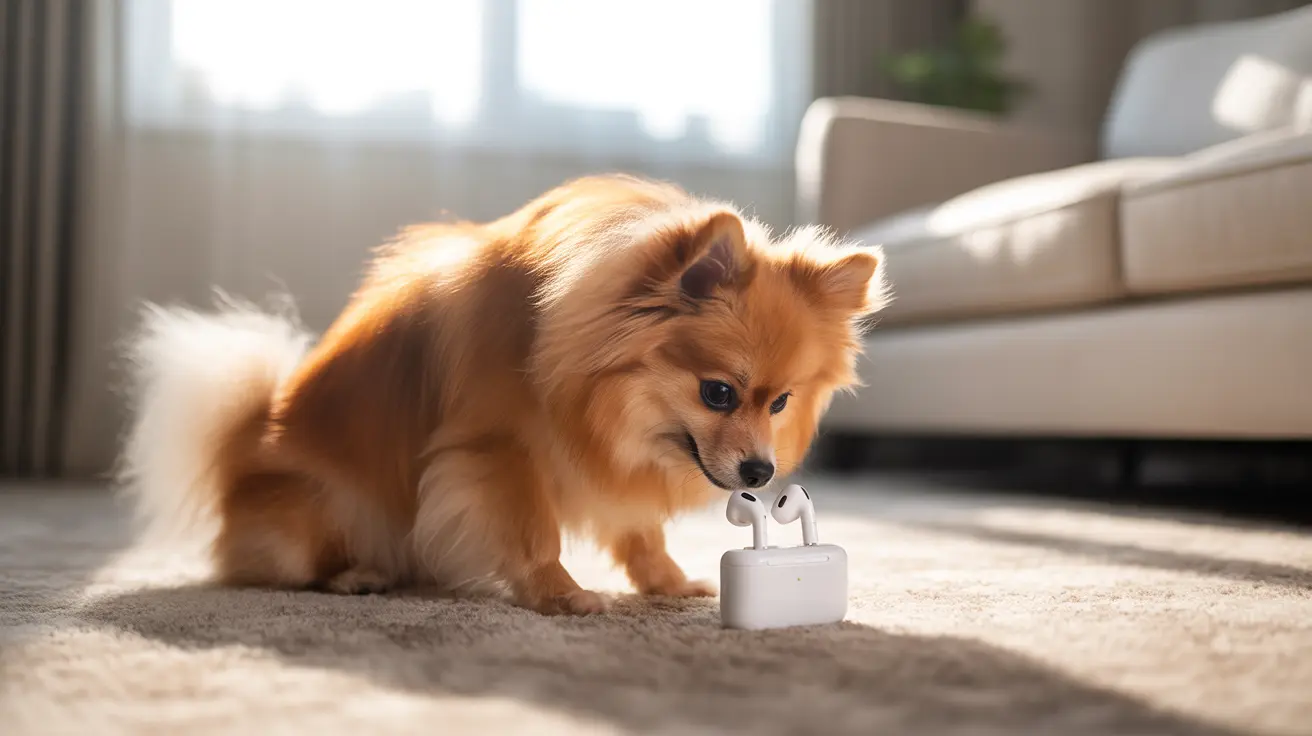Has your dog turned your expensive wireless earbuds into an impromptu snack? If your dog ate AirPods, don't panic – but do take immediate action. This comprehensive guide will walk you through the essential steps to ensure your pet's safety and explain when veterinary intervention is necessary.
While dogs swallowing AirPods might seem unusual, veterinarians regularly treat cases of pets ingesting these popular wireless earbuds. The severity of the situation depends on several factors, including your dog's size, whether the AirPod was chewed or swallowed whole, and how quickly you seek medical attention.
Understanding the Risks of Dogs Swallowing AirPods
AirPods pose several potential health risks to dogs. The most immediate concern is the lithium-ion battery contained within each earbud. If chewed, these batteries can leak caustic chemicals, causing severe burns throughout your dog's digestive system.
The physical size of AirPods presents another significant risk. For small dogs weighing less than 10 pounds, even an intact AirPod can cause dangerous intestinal blockages. Larger dogs typically have better odds of passing the device naturally, but monitoring is still essential.
Size Matters: How Dog Weight Affects Risk Level
- Your dog's size plays a crucial role in determining the severity of the situation:
- Small dogs (under 10 lbs): High risk of blockage; immediate vet care needed
- Medium dogs (10-50 lbs): Moderate risk; veterinary consultation recommended
- Large dogs (over 50 lbs): Lower risk, but should still be monitored closely
Immediate Actions to Take
- If you've discovered your dog ate AirPods, follow these critical steps:
- Remain calm and prevent your dog from eating anything else
- Note the time of ingestion and whether the AirPod was chewed
- Contact your veterinarian or emergency animal hospital
- Watch for warning signs of distress or blockage
Warning Signs That Require Emergency Care
- Watch for these serious symptoms that indicate your dog needs immediate veterinary attention:
- Repeated vomiting or retching
- Difficulty breathing or swallowing
- Excessive drooling or pawing at the mouth
- Lethargy or depression
- Loss of appetite
- Abdominal pain or bloating
Treatment Options and Recovery
- Your veterinarian will likely perform X-rays to locate the AirPod and assess any potential damage. Treatment approaches vary based on the situation:
- Monitoring and natural passage (common for larger dogs)
- Endoscopic removal if the device is still in the stomach
- Surgery if there's a blockage or risk of battery exposure
Prevention Tips for Pet Parents
- Prevent future incidents by implementing these safety measures:
- Store all electronics in secure, closed containers
- Keep charging cases out of reach
- Provide appropriate chew toys for oral stimulation
- Consider pet-proofing areas where electronics are commonly used
Frequently Asked Questions
What should I do immediately if my dog swallows an AirPod?
Contact your veterinarian immediately while keeping your dog calm. Don't attempt to induce vomiting unless specifically instructed by a professional, as this could cause additional harm.
How can I tell if my dog needs emergency veterinary care after eating an AirPod?
Seek emergency care if you notice vomiting, difficulty breathing, excessive drooling, lethargy, or signs of abdominal pain. These symptoms could indicate a blockage or chemical exposure from the battery.
Are small dogs at higher risk of intestinal blockage from swallowing AirPods?
Yes, small dogs under 10 pounds are at significantly higher risk of intestinal blockage due to their narrower digestive tract. They should receive immediate veterinary attention.
Can a chewed AirPod cause more harm to my dog than one swallowed whole?
Yes, a chewed AirPod is more dangerous because it may expose the lithium battery, which can cause chemical burns. Sharp edges from broken pieces can also potentially damage the digestive tract.
How long does it usually take for an AirPod to pass through a dog's digestive system?
In larger dogs who have swallowed an intact AirPod, it typically takes 24-48 hours to pass naturally. However, this varies based on the dog's size and whether the device was damaged.
Remember, while it's distressing to lose an expensive device, your pet's health should be the primary concern. When in doubt, always err on the side of caution and seek professional veterinary advice.






